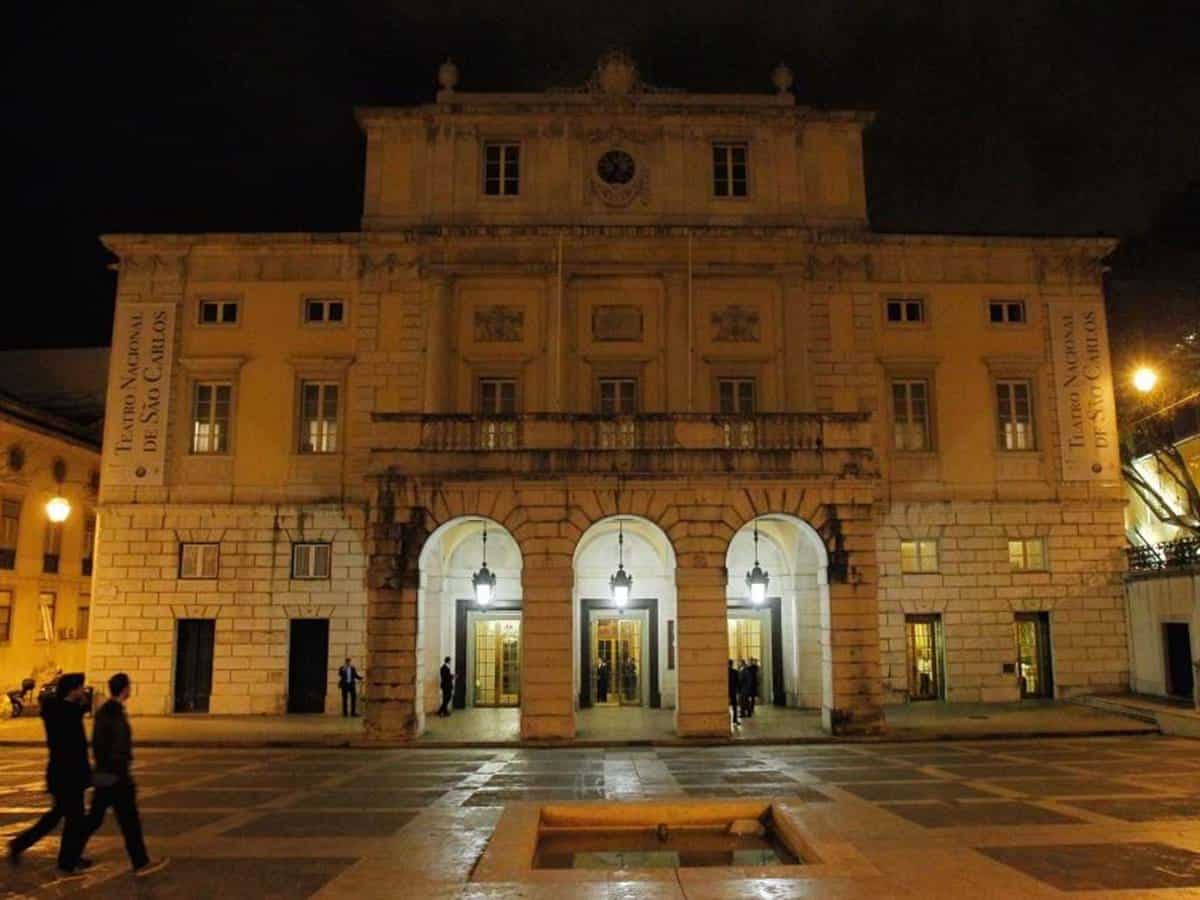The team of the Teatro Nacional de São Carlos (TNSC) will be temporarily installed in the Boa Hora Court, in Lisbon, after some improvements are made to the space, while its artistic activity will tour the country, the administration has revealed.
The TNSC, in Lisbon, is to close for refurbishment works and during this estimated two-year period it will have to “allocate 250 people”, which “is obviously a national priority”, Conceição Amaral, president of the board of directors of the Organismo de Produção Artística (Opart), which manages the São Carlos and the Companhia Nacional de Bailado (CNB), told Lusa.
“Many contacts were made to try to find solutions that would minimize the negative effect of our activity, because closing São Carlos in Chiado to the public is not closing the activity of São Carlos and Opart,” she told Lusa, stressing the “unique financial opportunity” to make the necessary investment, through the Recovery and Resilience Plan (PRR), in what is the only national opera house.
The move from the São Carlos to the Boa Hora Court generated some dispute among magistrates, because the building, which belongs to the Ministry of Justice, was initially intended to house the Superior Council of Magistrates and the offices of judges from the Supreme Court of Justice and the Court of Appeal, under a protocol signed in 2018.
This agreement was eventually not formalized and the Institute for Financial Management and Justice Equipment, together with the Directorate-General for the Treasury, handed over the property to São Carlos for two years, under a new protocol with Opart.
“It’s a national premise, an obligation, that we have to keep working and keep programming for the national territory. To do this, we need to install all the services, the artistic bodies, the orchestra and choir, rehearsal spaces, knowing that it’s very complex to work with separate teams. It would be impossible to have 250 people working on various floors or in various spaces in the city,” he explained.
According to Conceição Amaral, such a solution was initially planned, but it was concluded that “it would be very expensive and impossible to manage”.
Solutions were also sought from the Centro Cultural de Belém (CCB), the Palácio Nacional da Ajuda and the GNR, to find a space that would allow us to have the conditions to work, but that would also guarantee non-working space, to have a warehouse, to store collections, costumes, clothes and other material.
It was then that “the Boa Hora courthouse was identified as a possibility, knowing that it wasn’t being occupied”, and that this is a provisional solution, which, what’s more, will benefit the property with some improvement works, financially supported by Opart.
“Opart cleans, monitors, will take care of the plumbing, will take care of the electricity, will paint, will fix the floor, and everything we do obviously doesn’t come with us, it will stay so that in the future it can be enjoyed by whoever comes next,” she said.
The main reason for choosing the Boa Hora courthouse is that it is “five minutes from São Carlos” and facilitates the “artistic work of a choir, an orchestra and technical teams, and the monitoring of a work that we want to be rigorous and done to the minute, to the day, because the deadline is very short for the execution of the PRR’s biggest investment in culture”.
“At the moment we have a protocol for a temporary loan signed in August of this year and we’re starting with the cleaning,” he added.
As for the estimated investment for this work, she believes it will be below the 700,000/800,000 euros identified in a survey.
As far as timetables are concerned, Conceição Amaral said that the activity will run normally until July 2024 – with internal activity until June and the Festival ao Largo the following month – followed by the moving process.
“We have to close to the public to make the move, maybe in September, October, most of the teams – we’re talking about 24 – will already be installed at Boa Hora, which means we’ll be moving there within a year,” he said.
In the new building, in addition to offices and work teams, there will also be rehearsal rooms for the choir and orchestra, up to a limit of instrumentalists.
“At the moment, we’re negotiating with other venues to hold other types of rehearsals, if it’s [the Portuguese Symphony Orchestra] we don’t have a room to do it in the Boa Hora Court, it will be rehearsals in the middle of pieces that we can circulate around the country. The symphonic rehearsals will be held at the venues and with the agreement of the structures with whom we’re going to program. It’s being designed at the moment,” he added.
There won’t be a concert hall either, but by then the São Carlos will be programming with the CCB and at the Camões Theater, which will have finished the work in progress (the CNB is now installed at the São Carlos and in the Víctor Córdon studios).
Most of the artistic activity will take place on tour throughout the country, said Conceição Amaral, adding that “there are already protocols signed with various town halls, partner structures, because doing opera in the country is not easy and not all structures have the capacity to have the São Carlos Opera” as it is done at the theater in Lisbon.
The program is still being prepared and should be presented by the end of the year, along with the project for the requalification works.
“The architectural project has been awarded. João Mendes Ribeiro won the international competition, and we are currently in the process of assessing the preliminary and working studies.”
In June of this year, it was announced that the renovation work on the TNSC would not begin until the second half of 2024, after initially being scheduled to start in January of next year.
The PRR for Culture provides for 27.93 million euros of investment in the building’s refurbishment and initially the work was scheduled to take place between January 2024 and September 2025.









